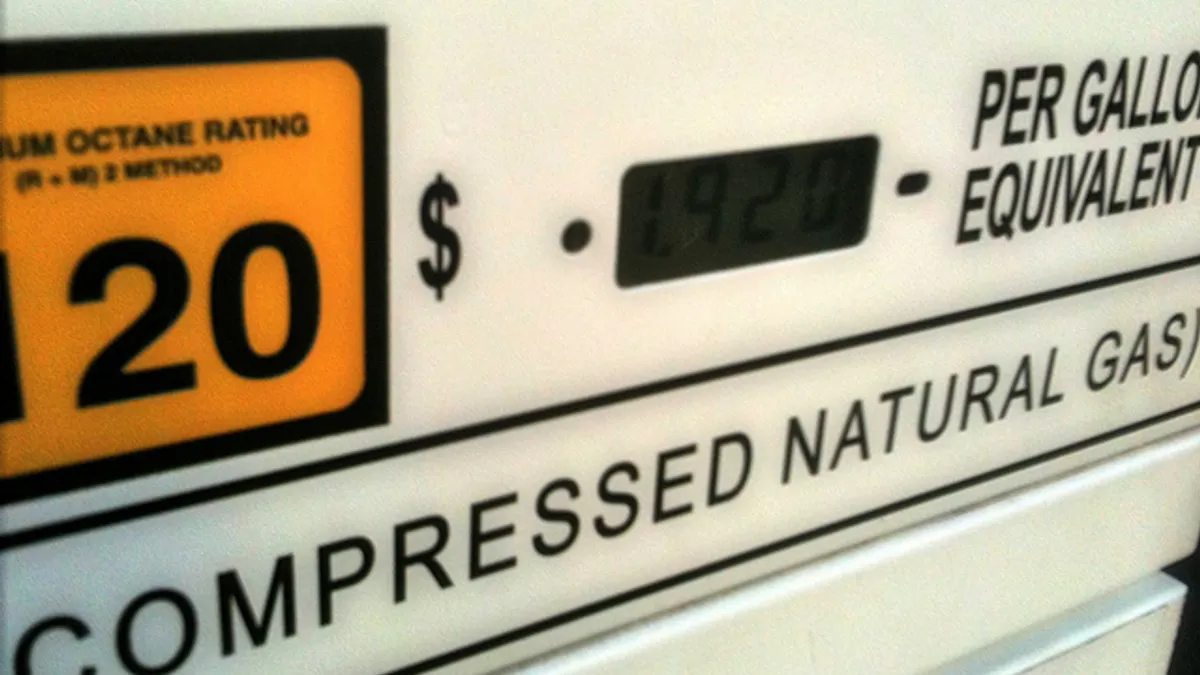Dive Brief:
- TruStar Energy designed and built a compressed natural gas (CNG) fueling station for All Waste Inc. in Hartford, CT, which is in the midst of a five-year process of converting 60 of its 80 trucks to CNG. 20 refuse trucks are currently fueled by CNG, with 10 more set for delivery later this fall.
- All Waste's Operations Specialist, Derek Alos, said the company's environmental program includes single-stream recycling for commercial and residential customers and reducing the number of trucks on the road by using vehicles that collect refuse and recycling.
- The station, designed to minimize fueling disruption of drivers' daily routes, has a 200-horsepower compressor and 60 time-fill fueling posts. Resources for a second compressor were installed to allow for expansion as the CNG fleet increases.
Dive Insight:
"Choosing to fuel our fleet with domestic, CNG means our trucks are cleaner and quieter. This is good for our company and for our customers," said Alos. "CNG is less volatile than gasoline and has no potential for ground or water contamination in the event of a fuel release. That's important to us."
The waste and recycling industry is a leader in using CNG to cut costs and increase efficiency. Waste Management President and CEO David Steiner explained to Bloomberg Television in August that operating CNG fleets makes good financial and economical sense. The company now has 4,200 trucks in its fleet that run on CNG.
"Our customers want a greener solution, so it's absolutely a greener solution," Steiner said. The CNG-fueled vehicles are cleaner-burning, quieter, and also less expensive than diesel. Many companies that have switched to CNG fleets have also built filling stations in areas of service where the trucks can refuel.
Other waste collection companies — such as Republic Services and Alpine Waste & Recycling — have also made the shift, proving that CNG fleets are a force that is moving the industry forward.














